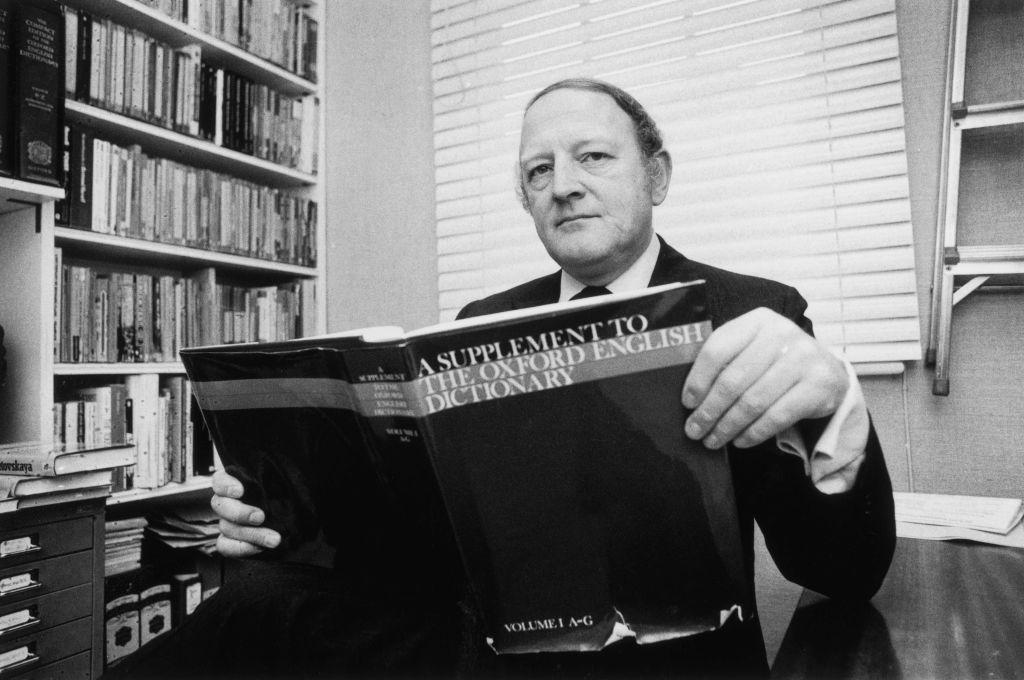
Get the latest financial news, insights and expert analysis from our award-winning MoneyWeek team, to help you understand what really matters when it comes to your finances.
You are now subscribed
Your newsletter sign-up was successful
Want to add more newsletters?
Dictionaries are curious things. To some people, they are the ultimate authority on a language. If a word isn't in the dictionary, they say, it isn't really a word, no matter how often and by how many people it's used. Oddly, the same people fly into paroxysms of rage when, to rustle up a little publicity for a new edition of their work, the dictionary people issue press releases with all the neologisms they've added that year. "But ‘sext’ isn't even a real word!" they cry.
Each language seems to have its authoritative edition: French has Larousse, American English has Webster's, German has Duden. And English English has the Oxford English Dictionary, AKA the OED.
It was a long time coming. It was back in 1857 that the Philological Society of London decided the language needed a proper dictionary. But it would be another 22 years before work got under way, after the society agreed in 1879 that the book would be published by the Oxford University Press.
MoneyWeek
Subscribe to MoneyWeek today and get your first six magazine issues absolutely FREE

Sign up to Money Morning
Don't miss the latest investment and personal finances news, market analysis, plus money-saving tips with our free twice-daily newsletter
Don't miss the latest investment and personal finances news, market analysis, plus money-saving tips with our free twice-daily newsletter
Initially, the editors thought it would take ten years to complete, and would be contained in just four volumes. But after five years' labour, they had only got as far as "Ant". They decided to end the first volume (or "fascicle", as they called it) there, and it was published on this day in 1884 under the name the "New English Dictionary". It was 352 pages long, cost 12/6 and sold 4,000 copies.
Eventually, the dictionary ran to ten volumes, and contained over 400,000 words and phrases. The final volume wasn't published until 1928. It was reprinted in 1933 as 12 volumes plus a supplement, and was renamed the Oxford English Dictionary. It expanded to 20 volumes in 1989.
In 1984, the publishers decided to digitise the dictionary. It took 120 typists five years, and a CD Rom edition was published in 1992. Now, of course, it is to be found online, available free of charge to anyone with a library card.
The third edition of the dictionary, which has been under way since the turn of the century, is unlikely ever to be printed, and will only be available in electronic format. It will be a constant work in progress, with regular updates.
Get the latest financial news, insights and expert analysis from our award-winning MoneyWeek team, to help you understand what really matters when it comes to your finances.

-
 The northern powerhouse city where first-time buyers are snapping up properties
The northern powerhouse city where first-time buyers are snapping up propertiesFirst-time buyers are “casting their nets” wider to find properties that match their budgets and lifestyles. We look at the top areas for first-time buyers.
-
 What the government’s baby boomer retirement data says about the future of pensions
What the government’s baby boomer retirement data says about the future of pensionsA study of the retirement routes of people born in 1958 paints a worrying picture for people’s pension savings
-
 31 August 1957: the Federation of Malaya declares independence from the UK
31 August 1957: the Federation of Malaya declares independence from the UKFeatures On this day in 1957, after ten years of preparation, the Federation of Malaya became an independent nation.
-
 13 April 1960: the first satellite navigation system is launched
13 April 1960: the first satellite navigation system is launchedFeatures On this day in 1960, Nasa sent the Transit 1B satellite into orbit to provide positioning for the US Navy’s fleet of Polaris ballistic missile submarines.
-
 9 April 1838: National Gallery opens in Trafalgar Square
9 April 1838: National Gallery opens in Trafalgar SquareFeatures On this day in 1838, William Wilkins’ new National Gallery building in Trafalgar Square opened to the public.
-
3 March 1962: British Antarctic Territory is created
Features On this day in 1962, Britain formed the British Antarctic Territory administered from the Falkland Islands.
-
10 March 2000: the dotcom bubble peaks
Features Tech mania fanned by the dawning of the internet age inflated the dotcom bubble to maximum extent, on this day in 2000.
-
9 March 1776: Adam Smith publishes 'The Wealth of Nations'
Features On this day in 1776, Adam Smith, the “father of modern economics”, published his hugely influential book The Wealth of Nations.
-
 8 March 1817: the New York Stock Exchange is formed
8 March 1817: the New York Stock Exchange is formedFeatures On this day in 1817, a group of brokers moved out of a New York coffee house to form what would become the biggest stock exchange in the world.
-
7 March 1969: Queen Elizabeth II officially opens the Victoria Line
Features On this day in 1969, Queen Elizabeth II took only her second trip on the tube to officially open the underground’s newest line – the Victoria Line.
